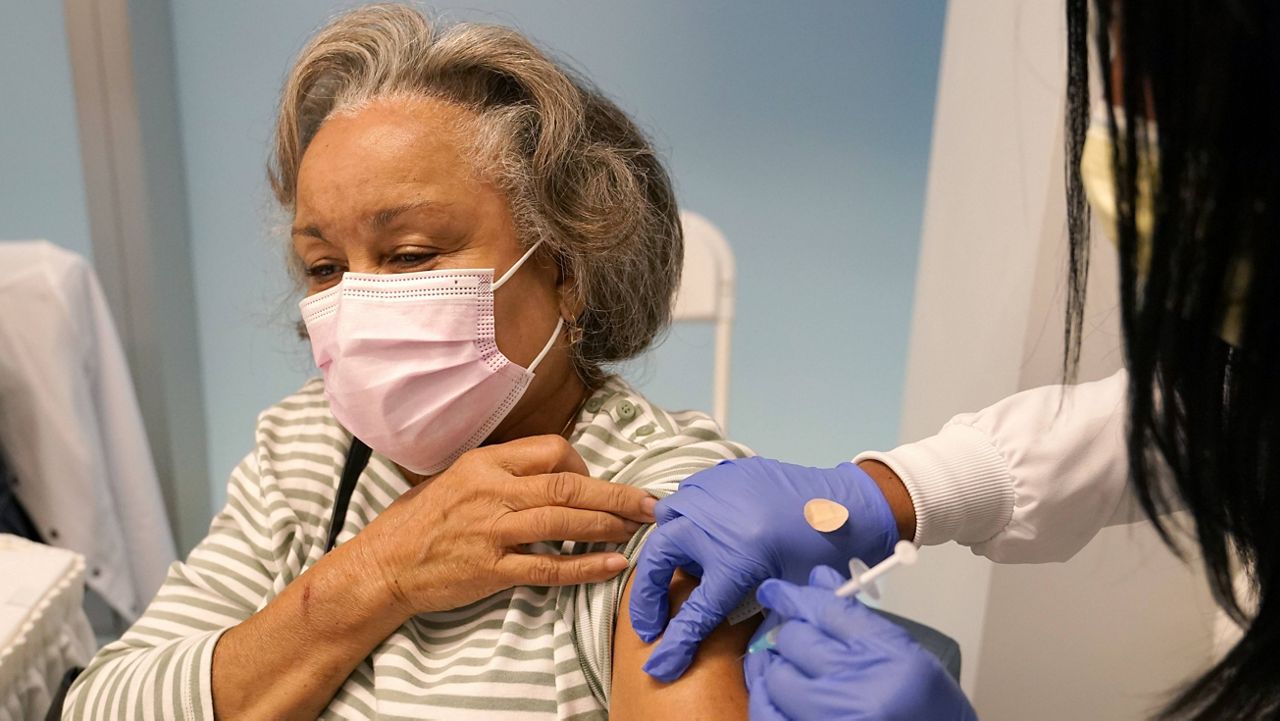Federal health officials announced Tuesday that COVID-19 vaccines will be distributed to federally qualified community health centers beginning next week.
What You Need To Know
- Federal health officials announced Tuesday that COVID-19 vaccines will be distributed to federally qualified community health centers beginning next week
- Utilizing community health centers will help ensure vaccines are dispensed more equitably, officials said
- The centers provide primary care services to underserved areas
- Jeff Zients, White House COVID-19 coordinator, also announced that 11 million vaccine doses will be delivered each week to states starting next week, a 28% increase since Jan. 20
The program is part of the Biden administration’s strategy to vaccinate as many Americans as quickly as possible by increasing vaccine supply, health workers to administer the shots and vaccination locations.
Utilizing community health centers will help ensure vaccines are dispensed more equitably, officials said. The centers provide primary care services to underserved areas. Two-thirds of their patients live at or below the poverty line, and 60% identify as minorities, Dr. Marcella Nunez-Smith, chair of the White House’s COVID-19 Health Equity Task Force, said Tuesday.
“Equity is our North Star here,” Nunez-Smith said. “This effort that focuses on direct allocations to the community health centers really is about connecting with those hard-to-reach populations across the country.”
The program will be rolled out in phases and ramped up over time. The initial phase focuses on 250 centers — at least one in each state — and aims to administer 100 million doses, vaccinating 50 million people. All 1,300 community health centers nationwide could eventually participate if they choose to, Nunez-Smith said.
By utilizing the centers, the Biden administration is hoping to vaccinate more homeless people, agricultural migrant workers, residents of public housing and people with limited English proficiency, Nunez-Smith said.
“And a really critical part of this work is also addressing vaccine confidence, which we know is lower in underserved communities than it is for the national average,” she said.
The centers selected for the first phase each serve at least 2,000 people age 65 or older, Nunez-Smith added. The Federal Emergency Management Agency will provide additional staff to the centers to accommodate the extra work.
Jeff Zients, White House COVID-19 coordinator, also announced that 11 million vaccine doses will be delivered each week to states starting next week, a 28% increase from the 8.6 million that were being distributed when Biden took office Jan. 20.
The officials said the federal government will need state and local governments to do their parts for the plan to meet its goals. They addressed governors in a call just before Tuesday’s briefing.
“Equity is core to our strategy to put this pandemic behind us,” Zients said. “And equity means that we are reaching everyone, particularly those in underserved and rural communities and those who have been hit hardest by this pandemic, but we cannot do this effectively at the federal level without our partners on the state and local level sharing this same commitment to equity. They need to lead this worker, as they know their communities better than anyone.”



